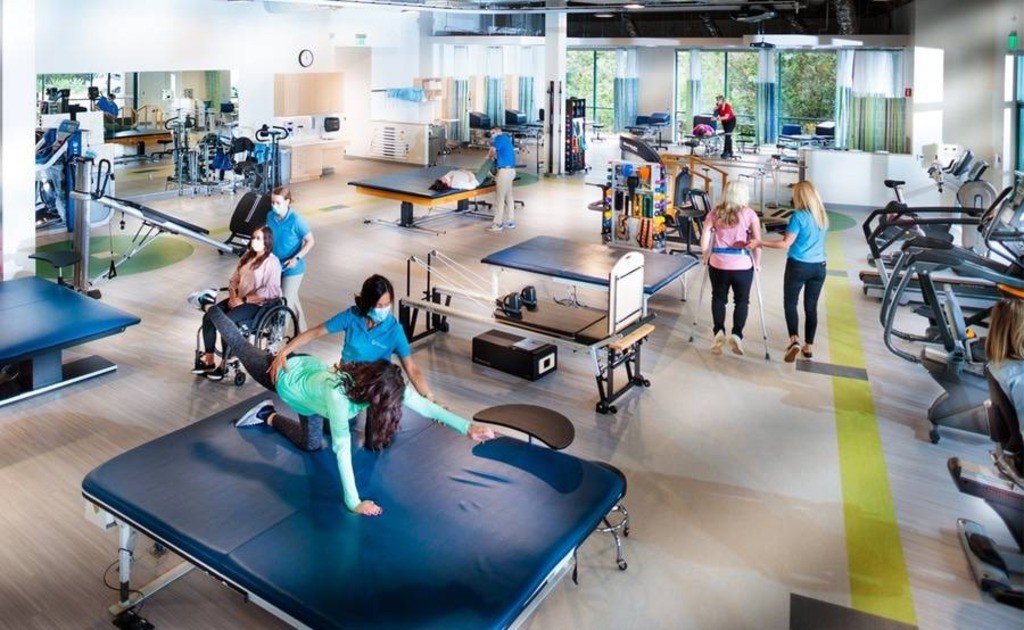The Integral Role of Rehabilitation Centres in Treating Substance Abuse Disorders

Substance abuse issues pose an extensive public fitness challenge internationally, affecting people from all walks of life.
The unfavorable impact on physical fitness, intellectual nicely-being, and social relationships underscores the urgency of powerful remedy interventions.
Rehabilitation facilities play an essential position in addressing substance abuse disorders via supplying complete and tailored approaches to recovery.
This article explores the multifaceted position of Rehabilitation centres, delving into the diverse additives of remedy, therapeutic modalities, challenges confronted, and the evolving landscape of substance abuse rehabilitation.
Understanding Substance Abuse Disorders:
Definition and Classification
To realize the function of Rehabilitation centres, it’s far critical to outline and classify substance abuse problems. Examining the special types of substances abused and the various severity tiers lays the groundwork for developing targeted treatment strategies.
Impact on Physical and Mental Health
Substance abuse takes a toll on each physical and mental fitness. The complex interplay among those dimensions necessitates a holistic technique to treatment. Rehabilitation facilities appoint a multidisciplinary method, addressing the bodily and mental aspects of substance abuse disorders.
The Evolution of Rehabilitation Centres
Historical Overview
Tracing the records of rehabilitation facilities offers insights into the evolution of remedy methodologies. From early moralistic methods to current evidence-based practices, the progression displays society’s changing perceptions of addiction.
Shift Towards Evidence-Based Practices
Modern rehabilitation facilities an increasing number of embrace evidence-primarily based practices, relying on clinical research to inform treatment protocols. The integration of empirically supported interventions enhances the efficacy of rehabilitation efforts.
Components of Substance Abuse Rehabilitation:
Detoxification
The initial phase of substance abuse remedy regularly entails cleansing. Rehabilitation facilities hire medically supervised detox programs to manipulate withdrawal symptoms adequately. Understanding the challenges and considerations in this segment is crucial for success outcomes.
Inpatient vs. Outpatient Rehabilitation
Rehabilitation Centres provide both inpatient and outpatient services, meeting individual needs and severity levels of dependency. Exploring the advantages and boundaries of each setting helps people make informed decisions about their remedy paths.
Psychotherapy and Counseling:
Therapeutic interventions form the spine of substance abuse rehabilitation. Various modalities, inclusive of cognitive-behavioral therapy, motivational interviewing, and institution remedy, are hired to cope with the mental components of dependency. This segment delves into the nuances of each technique and their applications.
Challenges in Substance Abuse Rehabilitation:
Stigma and Societal Perception:
Despite development, stigma surrounding substance abuse remains a giant barrier to treatment. This section explores the societal perceptions that prevent individuals from looking for assistance and the efforts rehabilitation facilities make to fight stigma.
Comorbidity and Dual Diagnosis:
Substance abuse regularly coexists with different mental health issues. Addressing comorbidity and dual analysis scenarios poses precise challenges for rehabilitation facilities. Understanding the intricacies of treating co-taking place issues is vital for complete care.
Innovations and Advances in Rehabilitation:
Technology-Assisted Interventions:
The digital age has ushered in progressive processes to substance abuse treatment. Rehabilitation facilities leverage the era, together with telehealth services and smartphone programs, to enhance accessibility and engagement in treatment.
Integrative and Holistic Approaches:
Recognizing the interconnectedness of thoughts, body, and spirit, a few rehabilitation facilities adopt integrative and holistic techniques. This segment explores the incorporation of complementary healing procedures, mindfulness practices, and well being packages within the rehabilitation putting.
Rehabilitation Beyond Abstinence:
Relapse Prevention:
Achieving and retaining long-time period restoration includes addressing the hazard of relapse. Rehabilitation Centres consciousness on equipping people with coping mechanisms, lifestyles, talents, and ongoing aid to mitigate the chances of returning to substance abuse.
Reintegration into Society:
Successful rehabilitation extends past sobriety; it entails reintegrating people into society as productive and fulfilled participants. Vocational schooling, educational support, and network engagement initiatives play pivotal roles in this section.
The Role of Family and Community Support:
Family Involvement in Treatment:
The effect of substance abuse extends to households, necessitating their involvement in the restoration process. This phase explores the position of family therapy and assists agencies in fostering a conducive environment for recovery.
Community-Based Rehabilitation:
Beyond the confines of rehabilitation facilities, network-primarily based projects make contributions to a supportive environment for people in restoration. Collaboration with neighborhood groups, grassroots efforts, and network cognizance programs beautify the general effectiveness of substance abuse rehabilitation.
Conclusion:
In the end, rehabilitation facilities function as linchpins inside the complete and dynamic panorama of treating substance abuse issues. From historical views to contemporary innovations, the evolution of rehabilitation facilities reflects a collective dedication to addressing the complexities of addiction. By embracing proof-based practices, thinking about the demanding situations inherent in treatment, and fostering a holistic technique, these centers contribute drastically to the well-being and recovery of people grappling with substance abuse problems. As societal attitudes continue to adapt, so too will the approaches hired by means of rehabilitation facilities, making sure that they continue to be at the leading edge of the conflict against substance abuse.



